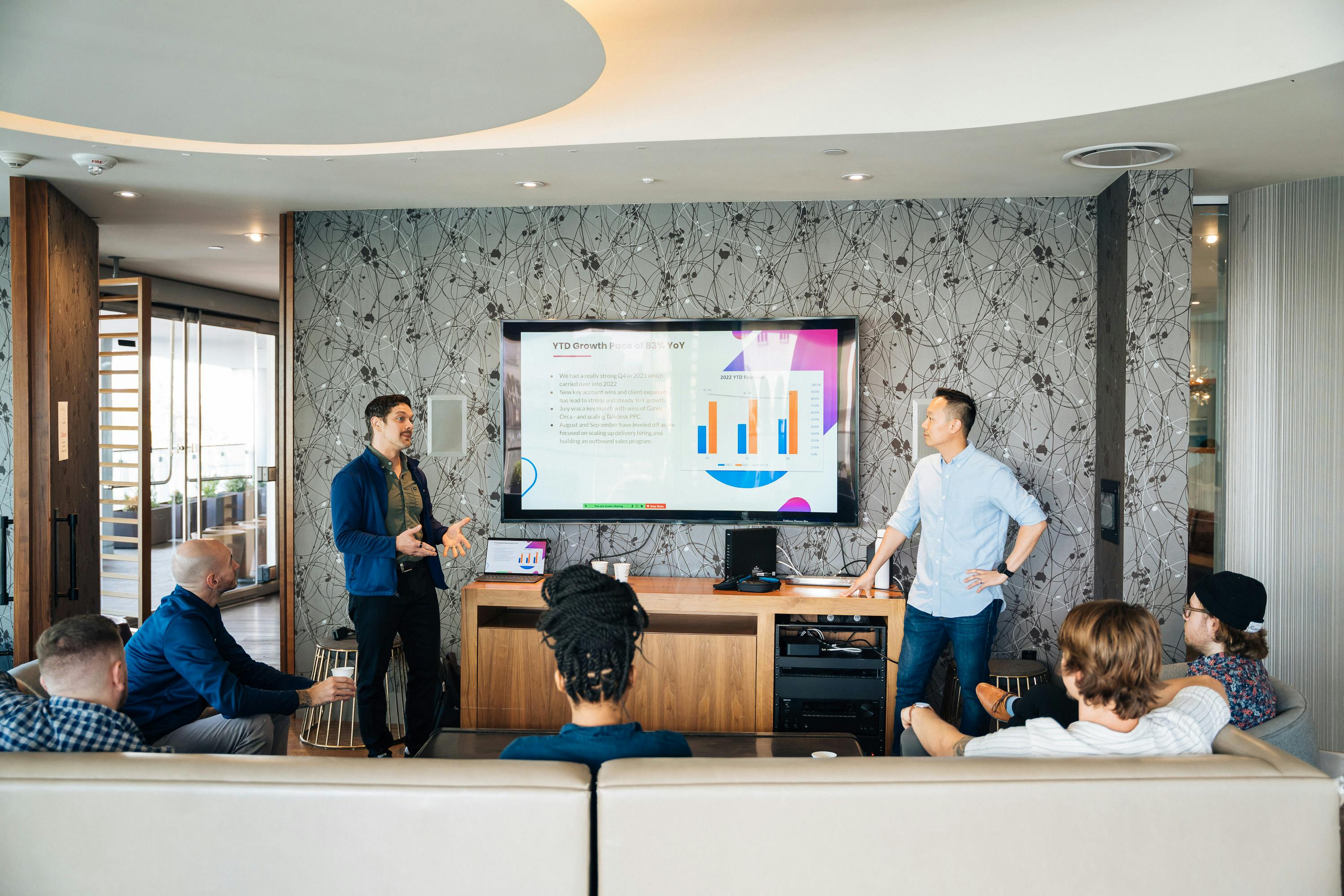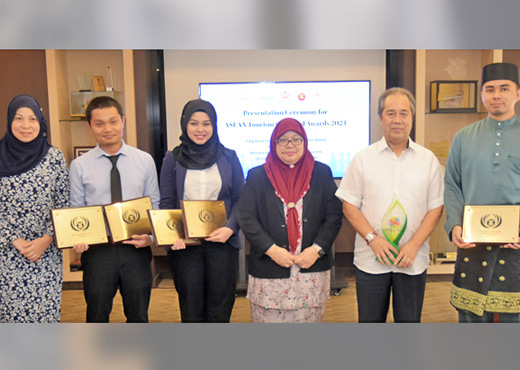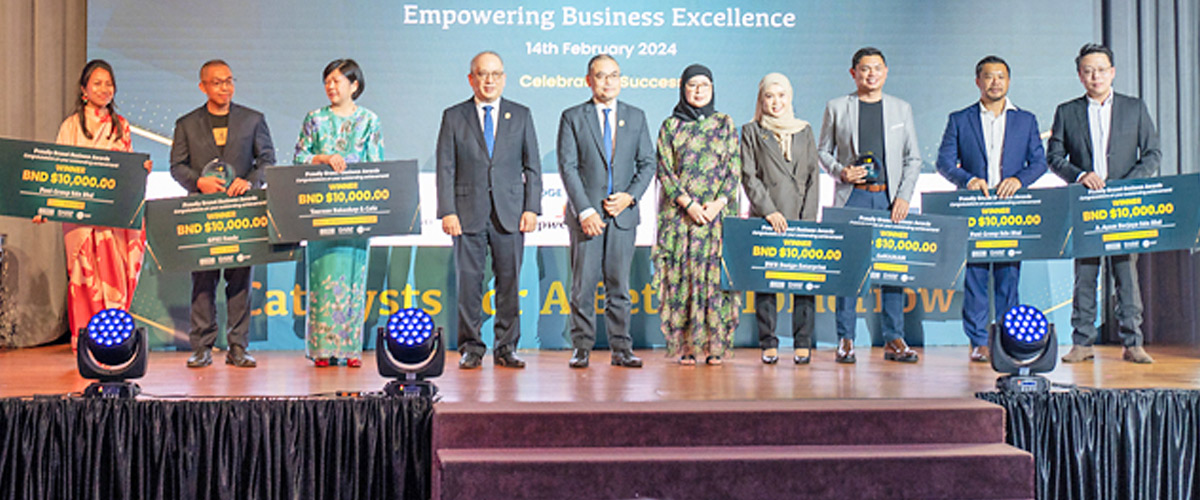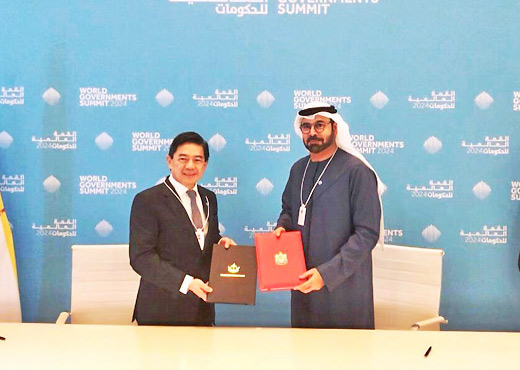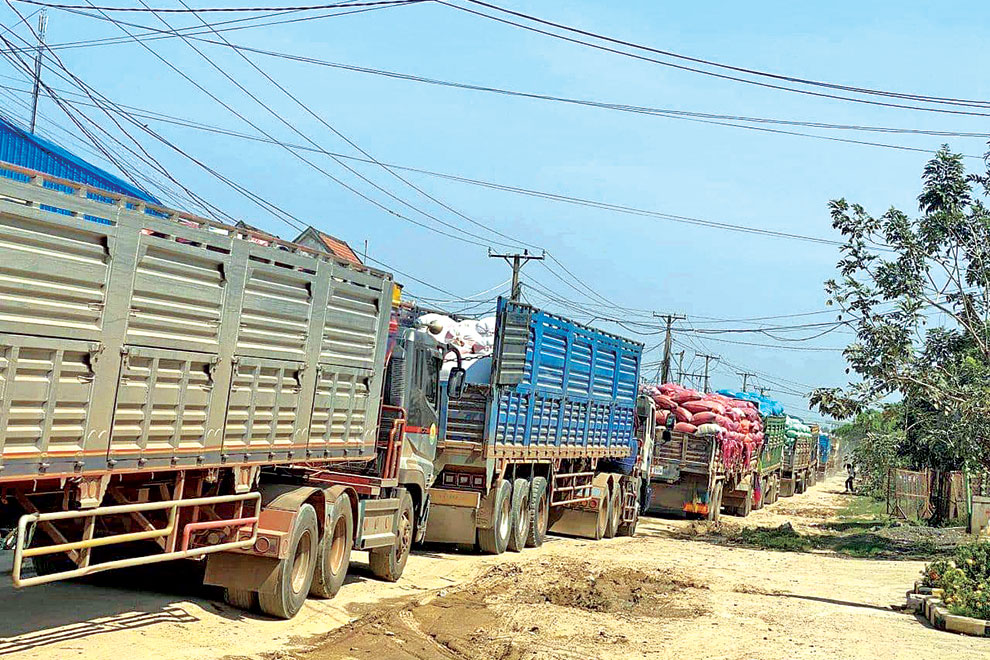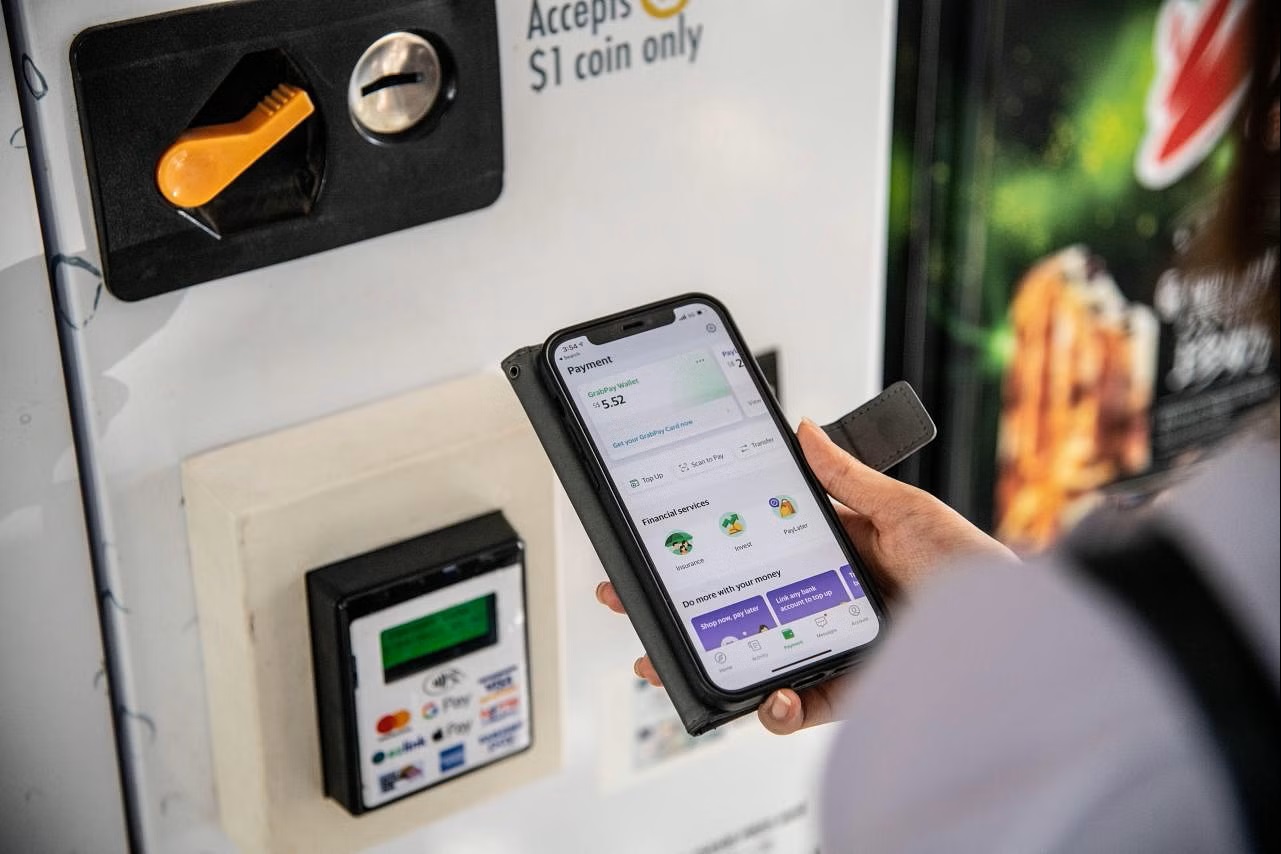Jokowi underscored the resilience of the Indonesian financial industry, with banking capital levels reaching 27.69 percent and banking credit growing 10.38 percent year on year, or above the pre-pandemic level, amid the global geopolitical situation with ongoing wars in Gaza and Ukraine. He also highlighted Indonesia's economic growth at 5.05 percent and controlled inflation at 2.57 percent.
Indonesia's foreign exchange reserves amounted to US$145 billion, the trade balance recorded a surplus of US$36 billion, and the current account deficit was a surplus of 0.16 percent, he stated. To foster an inclusive and sustainable economy, Jokowi encouraged the Financial Services Authority (OJK) to strengthen financial inclusion and literacy, which were still at 75 percent and 65 percent, respectively, in 2023.
(source: click here)
Small and medium businesses (SMBs) are a vital lifeline of the global economy. Worldwide, they represent 90 per cent of businesses and 50 per cent of employment and are often the cornerstones of growth and innovation.
In Asia-Pacific, their impact is even bigger. SMBs account for over 97 per cent of all businesses and employ over half of the workforce across Asia Pacific Economic Cooperation economies. They contribute significantly to economic growth, with their share of gross domestic product ranging from 40 per cent to 60 per cent in most countries.
Asia Pacific’s micro-businesses are also on the rise, with a new generation of digital-first micro-businesses that includes millions of creative individuals in the fast-growing creator economy.
Small businesses have shifted firmly into growth mode. Increased digitisation in key areas like services, logistics and payments has enabled this segment to reach new audiences and improve efficiencies.
Such payment advancements have allowed small businesses to access markets and opportunities that were not previously possible.
Here are five reasons why 2024 is shaping up to be a huge year for small businesses:
Rise of social commerce and the creator economy
By 2025, social commerce is expected to reach US$1.2 trillion, including work driven by a new generation of digital-first online content creators.
This trend is further propelled by shoppable media and influencer content, empowering SMBs to engage consumers to make purchases directly through social media platforms or navigate to brand sites.
About 54 per cent of consumers are more likely to purchase from an SMB through social commerce than through traditional e-commerce, indicating a significant opportunity for SMBs to increase their sales through social commerce.
Growth through cross-border selling
Technology and globalisation have upended the SMB landscape by providing them unprecedented access to global audiences. In fact, 79 per cent of surveyed SMBs by Visa expressed a strategic focus on cross-border selling for their growth initiatives.
The proliferation of e-commerce platforms, particularly in the Asia-Pacific region, also plays a pivotal role.
With integrated payment systems seamlessly connecting buyers from Switzerland to sellers in Sri Lanka, the prospect of selling to consumers on the opposite side of the globe is no longer a distant aspiration for SMBs.
The accessibility offered by these platforms diminishes geographical barriers, expanding the horizons for micro businesses and fostering a more interconnected global marketplace.
Small businesses take flight with travel rebound
SMBs are vital to the travel industry, making up 80 per cent of businesses in the sector, and they directly benefit from the post-pandemic travel rebound.
With business travel expected to surpass pre-pandemic spending levels in 2024, SMBs across food and beverage, tour guides and home-share operators should be well-positioned to capitalise.
To fully harness the potential of this travel rebound, SMBs should not only focus on optimising their payment processes but also tailor their offerings to meet the evolving needs and preferences of the post-pandemic traveler.
This includes embracing digital payment methods favoured by modern travelers and implementing secure and efficient transaction systems.
Moreover, by ensuring their systems can accept payments from inbound tourists, businesses pave the way for the next crucial step in enhancing their financial capabilities – embracing payment interoperability.
Payment interoperability, acceptance are top priorities
In a landscape where user experience is king, SMBs must prioritise offering a seamless and secure consumer payments experience.
It is particularly critical to address potential points of friction in the payments process because users may abandon their online shopping cart if faced with difficulties in completing their purchase leading to missed opportunities that SMBs can ill-afford.
SMBs today have a multitude of options for receiving payments, ranging from digital wallets and cards to account-to-account transfers.
In order to thrive in this evolving ecosystem, SMBs must prioritise implementing a compelling and user-friendly checkout experience, and partner with banks and fintech providers that offer advanced technologies to do so.
In addition, ensuring the safety of transactions with technologies such as tokenisation, biometrics, EMV chips, and predictive analytics play a crucial role in fortifying security measures, providing SMBs with the necessary tools to safeguard their financial transactions and customer data.
Big tools no longer just for big businesses
While SMBs typically adopt a gradual approach to digitalisation, unlike larger companies who are pack leaders, this is set to change.
Over the next year, 91 per cent of SMBs said they are at least somewhat likely to consider available AI tools and services such as ChatGPT to help elevate their business against competitors.
This shift will not only help them reach new audiences but also improve their overall agility in streamlining their processes, enhance efficiency, and stay competitive.
The confluence of these trends signifies that 2024 is the opportune moment for small businesses to leverage digitalisation and payment innovations. Payments are no longer just transactional; they have become an integral part of every business’ strategy for success and resilience.
As small businesses embrace these transformative shifts, they are not merely adapting to change. They are positioned to thrive and redefine the future of commerce on a global scale.
The writer is Visa’s head of merchant sales and acquiring, Asia-Pacific.
Source: The Business Times. Link: Here
In the short term, the tourism industry in the Sultanate anticipates that there will be over 400,000 tourist arrivals by air in 2026, bringing in an estimated BND300 million in tourism receipts from the arrivals.
Acting Director of the Tourism Development Department at the Ministry of Primary Resources and Tourism (MPRT) Salinah binti Haji Mohd Salleh said this during a presentation ceremony, held by the MPRT through the Tourism Development Department, to honour Bruneian recipients of the ASEAN Tourism Standards Awards, at its premises.
“To achieve these targets, we are working closely with current and new partners to explore new markets and launch new and improved products and packages,” she said.
The prestigious recognition was bestowed on Brunei’s entities in conjunction with the ASEAN Tourism Forum 2024 (ATF 2024), themed ‘Quality and Responsible Tourism – Sustaining ASEAN Future’ held on January 26 in Vientiane, Laos.
Permanent Secretary at the MPRT Hajah Tutiaty binti Haji Abdul Wahab was the guest of honour at the event.
“One of the Tourism Development Department’s initiatives was to organise the first Tourism Service Providers (TSPs) Enhancement Workshop that began in February last year,” Salinah said.
Source: Borneo Bulletin Read the full article here
The Proudly Brunei Business Awards, a newly introduced initiative by the Brunei Economic Development Board (BEDB) through Darussalam Enterprise (DARe), concluded its inaugural edition with an award ceremony at Tarindak D’Seni in Bandar Seri Begawan last night.
Deputy Minister of Finance and Economy (Economy) Dato Seri Paduka Haji Khairuddin bin Haji Abdul Hamid, the guest of honour, presented awards to the winners.
BEDB and DARe Acting Chief Executive Officer Daniel Leong said, “The Proudly Brunei Business Awards marks a milestone in our journey towards recognising and celebrating excellence within Brunei’s business community. Through the awards, we firmly believe that by recognising and honouring outstanding achievements, we not only celebrate business successes but also inspire more business to pursue the spirit of innovation and excellence.”
The awards were presented to the winning companies across seven award categories. In the open category, A Ayam Berjaya Sdn Bhd won the business growth award, Poni Group Sdn Bhd the innovation award, GoMamam the startup award, BWN Design Enterprise the youth entrepreneur award and Taurean Bakeshop and Cafe the women entrepreneur award.
In the priority clusters category, SPHI Foods won the food award and Poni Group Sdn Bhd the services award.
This year’s theme ‘Catalysts For A Better Tomorrow’ is a tribute to businesses that achieved growth while making significant contributions in their sectors.
The theme emphasises the role of businesses as catalysts for positive economic change, focusing on priority areas.
It seeks to honour companies that serve as role models, contributing to the development of the local economy and paving the way for a promising future for Brunei. At the heart of the awards is a thorough assessment and evaluation process, which involves various subject matter experts from government agencies and organisations.
Source: Borneo Bulletin
Read the full article here
The Prime Minister’s Office of Brunei Darussalam and the Ministry of Cabinet Affairs of the United Arab Emirates (UAE) signed a memorandum of understanding (MoU) on experience exchange on government development and modernisation, catalysing the formation of strategic partnerships through the Government Experience Exchange Programme (GEEP) during a ceremony at the Madinat Jumeirah in Dubai yesterday.
Signing on behalf of the Government of His Majesty Sultan Haji Hassanal Bolkiah Mu’izzaddin Waddaulah ibni Al-Marhum Sultan Haji Omar ‘Ali Saifuddien Sa’adul Khairi Waddien, Sultan and Yang Di-Pertuan of Brunei Darussalam was Minister at the Prime Minister’s Office and Minister of Finance and Economy II Dato Seri Setia Dr Awang Haji Mohd Amin Liew bin Abdullah.
Meanwhile, Minister of Cabinet Affairs Mohammad Abdullah Al Gergawi signed on behalf of the Government of the UAE.
The signing of the MoU underscored the two countries’ commitment in advancing go vernment progress, development and modernisation, while simultaneously highlighting the shared vision of the two countries in elevating governance and strengthening international collaboration. The partnership also embodies strategic alliances, emphasising the friendship between the two countries and the dedication to government development while facilitating collaboration through the exchange of experiences and sharing best practices in public service capacity building, climate change and renewable energy strategies.
Source: Borneo Bulletin
Read the full article here
Brunei Darussalam ranked top five globally in Instagram advertisement reach rate in terms of population ratio aged 18 and above with 85.3 per cent (287,050 people), after Bahrain, United Arab Emirates, Turkiye, and Kazakhstan.
This is according to Digital 2024, an annual report on social media and digital trends worldwide by Meltwater, a global leader in media, social and consumer intelligence, and We Are Social, a socially-led creative agency.
As for digital adoption and use in Brunei Darussalam, January 2024 reported 449.7 thousand Internet users in the Sultanate where 301.0 thousand were also social media users (about 66.3 of the population).
Cellular mobile phone connections were at 617.3 thousand, up by 3.4 per cent (over 20,000 people). This amounted to some 135.9 per cent when compared to the population.
Meanwhile, globally, the report indicated that social media users have reached 5.04 billion.
This equates to 62 per cent of the world’s population. Generally a social media user spends about two hours and 23 minutes each day on their social media platform.
TikTok topped the average time per Android user of any social platform globally, with 34 hours per month or equivalent to more than an hour per day using the platform.
Source: Borneo Bulletin
Read the full article here
The Thailand Board of Investment (BOI) reported a significant increase in investment applications in 2023, reaching a five-year high of 848.3 billion baht (approximately USD 24 billion), representing a 43% increase from the previous year.
As a country with shared borders and strong diplomatic ties, Vietnam emerged as Cambodia’s second-largest trading partner in the first month of 2024, with the exchange of goods between the two nations reaching over $670 million, according to the General Department of Customs and Excise (GDCE).
In January 2024, their trade volume hit $677.62 million, a 41.5% increase from $478.76 million in January 2023. Vietnam now ranks second, following China and ahead of the US, in Cambodia’s list of most significant trading partners.
Exports to Vietnam totalled $373.06 million for the month, a substantial rise of 116.6% from $172.23 million in the same period of 2022. Vietnamese exports to Cambodia slightly decreased by 0.6%, from $306.53 million to $304.57 million.
The surge in exports resulted in Cambodia’s trade surplus expanding to $68.49 million for the month, from a deficit of $134.3 million in January 2023.
Lim Heng, vice-president of the Cambodia Chamber of Commerce (CCC), told The Post on February 14 that enhanced diplomatic relations have accelerated trade, particularly in exports to Vietnam.
He said that agricultural products form an important part of the exports, as during harvest seasons, numerous local and Vietnamese traders purchase crops from Cambodian farmers for processing in Vietnam.
He noted that trade between the two ASEAN neighbours is expected to continue growing, bolstered by agreements on cross-border trade flows.
“The increase in the value of Cambodia’s exports reflects a growth in domestic production capacity. The current balance between exports and imports of Cambodian goods with all partner countries is closer, a departure from the past when import values greatly exceeded exports,” he explained.
“Vietnam is a vital market for Cambodian agricultural products,” he stressed.
To read full article, please click here.
Author: Hin Pisei
Source: The Phnom Penh Post
[JOHOR] Singapore and Malaysia achieved several bilateral milestones on Thursday (Jan 11), with significant progress on the Johor Bahru-Singapore Rapid Transit System (RTS) Link and a memorandum of understanding (MOU) inked for a special economic zone between Singapore and Johor.
All this took place during Singapore Prime Minister Lee Hsien Loong’s working visit to the southern Malaysian state, which was also his first overseas trip in 2024.
Noting that Singapore and Malaysia will celebrate 60 years of bilateral relations in 2025, PM Lee said in a Facebook post that he looks forward to both countries “charting new areas of cooperation, including in trade and investment, tourism, innovation, and the digital and green economies”.
His first stop on the day-long visit was the RTS Link Marine Viaduct site at the Strait of Johor, for a ceremony commemorating the completion of a connecting span that links the Malaysia and Singapore ends.
PM Lee and Malaysian Prime Minister Anwar Ibrahim signed commemorative plaques to symbolise their shared commitment to deliver the RTS Link, which will further improve connectivity between Singapore and Malaysia.
“The completion of the RTS Link will certainly strengthen the friendship between Malaysia and Singapore, and drive economic growth and prosperity for both countries,” said Anwar in a Facebook post written in Malay.
The cross-border project reached 65 per cent completion as at Dec 31, and is on track to begin operations by December 2026, both transport ministries announced on Thursday.
Singapore’s Acting Transport Minister Chee Hong Tat, who was part of PM Lee’s delegation, told reporters that the RTS Link “will make travel between the two countries more convenient and benefit both Singaporeans and Malaysians”.
Noting that 350,000 people cross the Causeway daily for work, education and social visits, Malaysian Transport Minister Anthony Loke said the RTS Link will reduce congestion on the Causeway by 35 per cent.
“We must ensure that our infrastructure meets the demands of one of the world’s busiest border crossings,” he added.
When completed, the 4 km cross-border rail shuttle service will connect Bukit Chagar station in Johor Bahru and the RTS Link Woodlands North station in Singapore, with a journey time of about five minutes.
The service will have the capacity to carry 10,000 passengers an hour in each direction, with Malaysia’s MRT Corp estimating first-year ridership at 41,400 passengers per day.
RTS Operations, a joint venture by Singapore rail operator SMRT and Malaysian public transport firm Prasarana, will run the rail shuttle.
Both countries have agreed that the fares, which are not yet finalised, will be determined by RTS Operations.
In determining fares, said Chee, the operator will have to take into account factors such as demand, the costs of providing an “efficient and reliable service for commuters on a financially stable basis”, and the fares charged by alternative travel options. Loke said the fares will “definitely be competitive”.
Cross-border flows
Later in the day, both prime ministers witnessed the signing of an MOU between Singapore and Malaysia for the Johor-Singapore Special Economic Zone (JS-SEZ), which aims to improve cross-border flows of goods and people, and increase investment.
“Together with the RTS Link, the SEZ will enhance cross-border links, support businesses, and create jobs on both sides of the Causeway,” said PM Lee in his post.
The MOU was signed by Singapore’s Trade and Industry Minister Gan Kim Yong and Malaysia’s Minister of Economy Mohd Rafizi Ramli at the DoubleTree Hilton hotel in Johor.
Both countries have agreed to work towards a “full-fledged” agreement on the JS-SEZ, with an update to be given at the next Malaysia-Singapore leaders’ retreat.
A framework will be developed to iron out details for this legally-binding agreement, such as the economic sectors of mutual interest for cooperation, as well as the zone’s geographical coverage.
Rafizi said the JS-SEZ is an “unprecedented opportunity to… elevate the economic attractiveness of both Johor and Singapore”.
Under the MOU, both sides will promote a more “seamless and expedited” flow of goods, said Singapore’s MTI in a separate statement. At the leaders’ retreat last October, PM Lee said this may mean special tax arrangements and bonded warehouses.
For people, the aim is to enable freer movement – for professionals, managers, executives and technicians, for example – to support investments and business operations.
Meanwhile, strengthening the business ecosystem within the JS-SEZ could mean talent and vocational training for workers, and economic support for businesses.
The MOU also established a joint committee to oversee its implementation, co-led by MTI and Malaysia’s Ministry of Economy. The committee will report to the Joint Ministerial Committee for Iskandar Malaysia, co-chaired by Singapore’s National Development Minister Desmond Lee and Malaysia’s Rafizi.
Singapore and Malaysia will also explore several other initiatives that will “build towards the JS-SEZ”.
A one-stop business and investment service centre could be set up in Johor to facilitate applications for the approvals and licences necessary for Singapore businesses to set up there.
Land checkpoints on both sides could adopt passport-free QR code clearance for travellers, or digitised processes for cargo clearance.
Both countries are looking at holding a co-organised investors’ forum to gather feedback from Singapore and Malaysia businesses on the JS-SEZ, and joint promotion events to encourage trade and investment in the zone.
Both will also explore facilitating renewable energy cooperation in the JS-SEZ, and curating training and work-based learning initiatives to address talent and skills gaps for relevant industries there.
The JS-SEZ rides on the strong growth of Johor and significant investments in the region by Singapore, said the ministries.
In 2022, Johor recorded RM70.6 billion (S$20.2 billion) in investments across sectors such as electrical and electronics; medical equipment; food manufacturing; and data centres.
Singapore was Johor’s second-largest foreign investor from January to June 2022, and contributed to about 70 per cent of Johor’s total foreign direct investment in manufacturing.
Malaysia and Singapore are each other’s second-largest trading partners, with bilateral trade growing 18.9 per cent year on year to S$153 billion in 2022.
In 2022, Singapore was also Malaysia’s top source of foreign direct investment, making up 20.5 per cent of the total.
Source: The Business Times.
Link: Here
SMALL and medium-sized enterprises (SMEs) in Singapore and elsewhere are likely to grapple with escalating costs, challenges in talent acquisition, and regulatory changes in the environmental, social and governance (ESG) landscape, a new study has found.
Amid global supply chain and trade disruptions being linked to sharp increases in the prices of utilities and supplies, nearly six in 10 businesses (58 per cent) cited higher costs as their top concern, according to the study done by the Association of Chartered Certified Accountants (ACCA).
A quarter of respondents shared that utility prices had gone up by more than 20 per cent.
The professional accountancy body said that SMEs need to have effective cost-management practices as well as innovative financial strategies.
ACCA recommended that companies adopt digital technologies that would enable them to streamline operations, reduce costs and enhance productivity.
“As we enter the new year, SMEs are grappling with a wide spectrum of challenges, but our findings are also a clarion call for SMEs to embrace strategic innovation,” said ACCA’s head of SME Aleksandra Zaronina-Kirillova.
“By addressing these challenges head-on, SMEs can unlock new growth avenues and strengthen their market position,” she added.
Job vacancies for professional workers were reported by 31 per cent of businesses. Fourteen per cent said they were unable to find suitable candidates for roles such as clerical workers, technicians, and service and sales workers.
This calls for a renewed focus on talent acquisition, skill development and retention strategies, said ACCA. The implementation of continuous learning and development opportunities can be used to retain top talent in companies, the body said.
In line with regulatory changes in the ESG landscape, nearly 50 per cent of SMEs are now required to provide ESG information.
This highlights the growing importance of sustainable practices for SMEs to retain their competitive edge. However, the report identified a gap in the ability for some SMEs to generate and manage this data, which presents both a challenge and opportunity for them.
ACCA noted the importance of embracing sustainable practices – not only as a regulatory compliance measure, but also as a strategic move to attract new business and customers.
“In these testing times, SMEs must pivot towards innovative strategies to navigate the complexities of cost pressures, talent retention, and sustainable practices,” said Zaronina-Kirillova. “Our research not only identifies the critical hurdles but also offers a roadmap for SMEs to emerge stronger and more agile.”
Source: The Business Times
Link: Here




